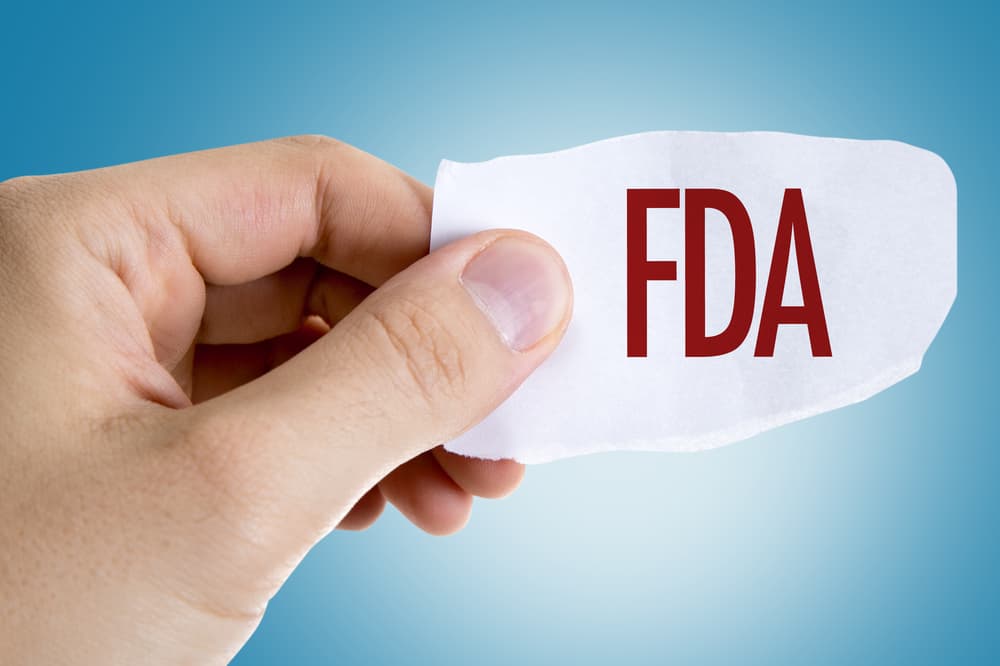FDA Regulatory Guidance and Enforcement Defense: Comprehensive Legal Support
Avoid a halt in operations by meeting FDA regulations

The landscape of FDA regulations can pose significant challenges for businesses operating in the medical device, pharmaceutical, tobacco, dietary supplement, and food industries. Non-compliance with these regulations can result in severe consequences, including costly legal penalties, product recalls, and damage to your company's reputation.
At FDA Atty, we offer comprehensive legal support to help you understand and adhere to FDA regulations, mitigating risk and ensuring long-term success.
Navigating FDA Regulatory Status Calls
FDA Regulatory Status Calls can be a critical juncture in the regulatory process. These calls often involve discussions about compliance issues, potential enforcement actions, and strategies for addressing FDA concerns. It's essential to approach these calls with a clear understanding of the regulatory landscape and a strategic approach to communication.
The following questions are the essential points recommended to make the regulatory process more effective.

What Can You Expect From FDA Regulatory Status Calls?
Calls typically involve a discussion of specific regulatory issues, such as labeling, manufacturing practices, or clinical trial data. The FDA may also request additional information or clarification on certain aspects of the product or process, for that reason, it's essential to be prepared to answer questions concisely and accurately.
Common Issues Addressed in FDA Status Calls
Manufacturing Practices
The FDA may scrutinize your manufacturing processes to ensure adherence to Good Manufacturing Practices (GMP) and other relevant regulations. This may involve inspections of your facilities, review of quality control procedures, and assessment of your batch records.
Labeling and Advertising
Appropriate labeling is crucial for FDA-regulated products since the FDA may raise concerns about product claims, ingredient listings, or promotional materials.
Clinical Trials
For drug and medical device manufacturers, the FDA may review clinical trial data to assess the safety and efficacy of your products. This may involve questions about study design, data analysis, and adverse event reporting.
Regulatory Requirements
The FDA may identify specific regulatory requirements that your product or process does not meet. This could include issues related to registration, listing, or premarket approval.
Post-Market Surveillance
The FDA may inquire about your post-market surveillance activities, such as adverse event reporting, product recalls, and corrective actions.
How Legal Counsel Can Assist with Regulatory Status Calls
Possessing a thorough understanding of regulatory requirements is crucial for ensuring smooth business operations and compliance. However, attempting to manage these responsibilities on your own can be both overwhelming and time-consuming, ultimately diverting valuable resources from other critical areas of your business. Therefore, we recommend engaging a skilled attorney to provide essential support during FDA Regulatory Status Calls.
A qualified legal professional can assist by:
- Prepare for the Call: Review the agenda and identify potential areas of concern.
- Develop Effective Communication Strategies: Craft clear and concise responses to the FDA's questions.
- Negotiate with the FDA: Advocate for your company's interests and seek favorable outcomes.
- Document the Call: Create detailed notes of the discussion for future reference.
- Develop a Post-Call Action Plan: Identify any follow-up actions required and establish timelines for completion.
Preparing for FDA Enforcement Meetings
FDA Enforcement Meetings are significant events that can have a substantial impact on a regulated business. These meetings often arise due to serious compliance issues, such as violations of the regulations mentioned above.
Understanding the Purpose of FDA Enforcement Meetings
The primary purpose of an FDA Enforcement Meeting is to address specific regulatory concerns and discuss potential corrective actions. The FDA may utilize these meetings to:
- Communicate regulatory expectations: Clarify regulatory requirements and expectations for your products or processes.
- Identify compliance gaps: Highlight specific areas where your company may be falling short.
- Discuss potential enforcement actions: Outline potential consequences for non-compliance, such as Warning Letters, injunctions, or product recalls.
- Develop a corrective action plan: Work with your company to create a plan to address identified issues.
Key Strategies for Successful FDA Meeting Appeals
With our years of experience effectively acting as a bridge of understanding between the FDA and our respected clients, we consider the following to be some of the most appropriate strategies for successful outcomes when it comes to administrative appeals:
- Thorough Review: The starting point is to conduct a comprehensive review of the FDA's concerns and gather all relevant documentation, including manufacturing records, test data, and quality control procedures.
- Identification of Root Causes: This is the stage to pinpoint the underlying issues that led to the FDA's concerns and develop a plan to address them.
- Developing a Strong Response: Another crucial point is to craft a well-structured and persuasive response that addresses each of the FDA's points, providing evidence and data to support your position.
Legal Representation in FDA Enforcement Meetings
Engaging legal counsel is paramount when facing an FDA Enforcement Meeting. An experienced attorney can provide invaluable support and guidance, mitigating risks and protecting your company's interests.
Addressing FDA IHCTOA Letters and Enforcement Actions
What is an FDA IHCTOA Letter?
An FDA Inspection, Clinical Hold, Termination Order, and Approval (IHCTOA) letter is a formal communication from the FDA to a regulated company indicating significant regulatory concerns. These letters often stem from inspections that uncover critical violations of Good Manufacturing Practices (GMP), clinical trial protocols, or other regulatory requirements.
Common Reasons for Receiving an IHCTOA Letter
Several factors can lead to the issuance of an IHCTOA letter, including:
- Serious Manufacturing Violations
- Clinical Trial Issues
- Product Quality Issues
- Failure to Comply with Regulatory Deadlines
Legal Defense and Response Strategies for IHCTOA Letters
Receiving an IHCTOA letter can be a serious setback for a regulated company. It's crucial to respond promptly and effectively to mitigate the potential consequences. Here are some key strategies to consider:
Immediate Assessment
Review the IHCTOA letter in detail to understand the specific allegations.
Identify any immediate corrective actions that may be necessary.
Assess the potential impact on your business operations and product supply.
Legal Counsel
Consult with experienced FDA regulatory attorneys to develop a comprehensive response strategy.
How FDA Atty Helps
By engaging the services of an experienced FDA attorney like Marc Sanchez, you can face the complexities of FDA regulations with confidence.
At FDA Atty, we are committed to providing our clients with the highest level of legal representation and guidance. Our team of experts has a deep understanding of the FDA's regulatory framework and can help you address a wide range of regulatory challenges, including IHCTOA letters and other enforcement actions.
If you're facing an FDA IHCTOA letter or other regulatory issue, please don't hesitate to contact our office. We are here to help you protect your business and ensure long-term compliance.
How We Help
Services
Are you in trouble with the FDA?
Don’t panic — you’ve got backup. Download 5 Tips to Help You Navigate FDA Enforcement and learn how to resolve the situation now.
Expert knowledge of FDA regulations that helps you strategically grow your business

“